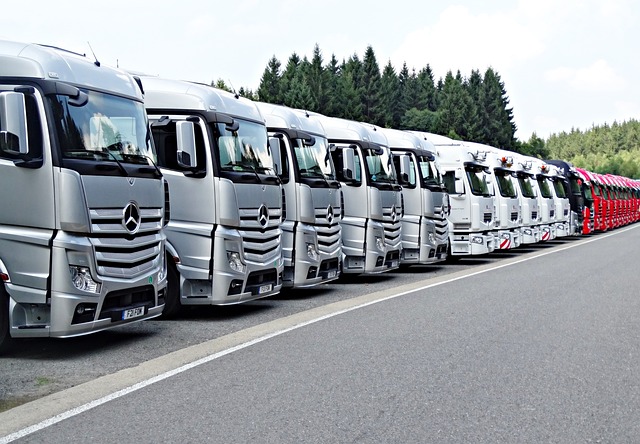Liability insurance is crucial for businesses and individuals to protect against potential risks and claims, covering legal expenses and damages from incidents like property damage or professional negligence. Key types include general liability, professional liability, and specialized cargo protection plans essential for businesses handling physical goods. These plans safeguard against cargo-related risks during transit, storage, or delivery, building client trust and ensuring smooth operations. Businesses should carefully review different coverage options and limits, considering their unique needs, especially in sectors like e-commerce or logistics where tailored cargo protection plans can offer better value.
In today’s world, ensuring comprehensive liability insurance is paramount for individuals and businesses alike. Navigating the intricacies of this protective measure can seem daunting, but understanding the basics and exploring specialized options like cargo protection plans is essential. This article guides you through the process, covering key aspects such as different coverage types, limit considerations, and strategies to achieve robust security without incurring excessive costs. Unraveling these elements empowers informed decisions, especially when it comes to vital cargo protection plans.
Understanding Liability Insurance: Basics and Importance

Liability insurance is a crucial component of any business or individual’s risk management strategy, offering financial protection against potential claims and lawsuits. This type of insurance covers legal expenses and damages that may arise from incidents such as property damage, personal injury, or professional negligence. Understanding liability insurance involves grasping its fundamental types—general liability, professional liability (also known as errors and omissions), and specialized coverages like cargo protection plans—each tailored to specific needs.
For businesses dealing with physical goods, cargo protection plans are essential. These policies safeguard against financial loss during transit, storage, or delivery, ensuring that entrepreneurs can replace or repair damaged merchandise. By having comprehensive liability insurance, including these specialized plans, individuals and companies demonstrate a commitment to risk mitigation, fostering trust with clients, partners, and stakeholders alike.
Cargo Protection Plans: What They Cover and Why They Matter

Cargo protection plans are essential components of a comprehensive liability insurance strategy, especially for businesses involved in transportation and logistics. These specialized plans offer tailored coverage to safeguard against potential risks associated with cargo during transit. In today’s digital era, where supply chains are intricate and global, ensuring the integrity of goods is more critical than ever.
These plans typically cover a wide range of incidents, including damage, loss, or theft of cargo while in transit. They can protect businesses from financial losses resulting from natural disasters, accidents, or even human error. By implementing a robust cargo protection plan, companies can mitigate risks and ensure the smooth operation of their supply chain. This, in turn, fosters trust among clients and partners, as it demonstrates a commitment to safeguarding valuable goods.
Navigating Different Types of Coverage and Limits

When navigating liability insurance, understanding different types of coverage and limits is crucial for ensuring comprehensive protection. Policies can vary greatly in terms of what they cover and the level of protection offered. For instance, general liability insurance covers common risks associated with business operations, while professional liability (or errors and omissions) insurance protects against claims related to negligence or mistakes in services provided.
Additionally, businesses operating with physical assets or transporting goods should consider cargo protection plans. These plans are tailored to safeguard valuable items during transit, storage, or handling, providing an extra layer of security beyond standard liability coverage. By carefully reviewing the types of coverage and their limits, businesses can select a policy that aligns with their specific needs, ensuring they’re adequately protected against potential liabilities and losses.
Tips for Ensuring Comprehensive Protection Without Unnecessary Costs

To ensure comprehensive liability insurance without unnecessary costs, it’s crucial to understand your specific needs and avoid overinsuring. Start by assessing your risk profile and industry standards for your business sector. For instance, if you’re in e-commerce or logistics, consider detailed cargo protection plans tailored to high-value items, which can offer better coverage at a more reasonable price than broad, all-encompassing policies.
Next, review policy exclusions carefully to avoid paying for protections you don’t need. Many standard policies exclude certain activities or types of damage; make sure these align with your operations. Negotiate with insurers and compare quotes from multiple providers to find the best balance between coverage and cost. Remember, a well-tailored policy that addresses your unique risks will offer more protection at a lower price point than a general, one-size-fits-all approach.
When navigating liability insurance, understanding your needs and prioritizing comprehensive protection without unnecessary costs is key. By familiarizing yourself with various coverage types and limits, as well as considering tailored cargo protection plans, you can ensure that your business or venture is adequately shielded from potential risks. Remember, the right insurance strategy isn’t just about minimizing financial exposure; it’s about fostering peace of mind and enabling sustainable growth in today’s competitive landscape.
